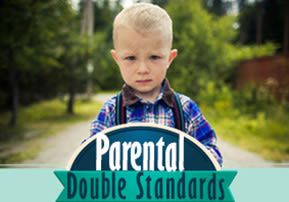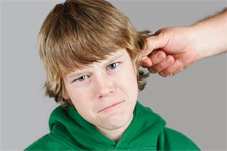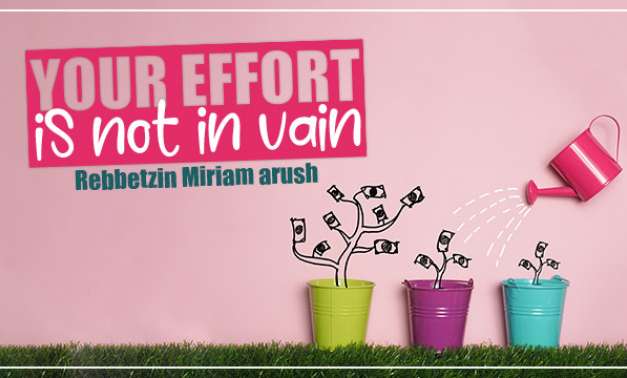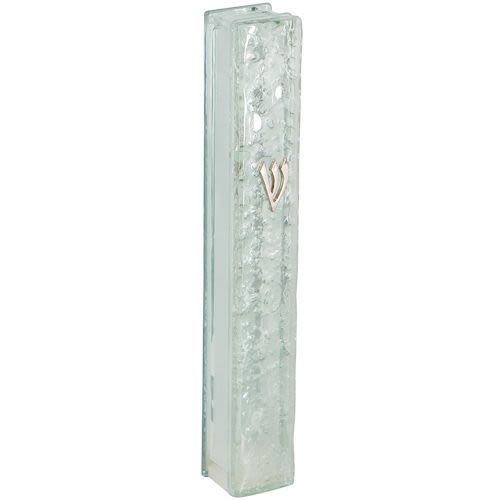
Parental Double Standards
If a parent is a bit truthful, he’ll realize that all the criticisms said to the children really apply to him. A parental double standard is just not fair...

Translated by Rabbi Lazer Brody
In developing parental patience, don't forget that a child is a child! Parents should remind themselves, “I also was a child once, and I did exactly the same silly things, and it never occurred to my child-brain that there was something wrong with the crazy things I did.”
Unfortunately there are parents who are tired of life and embittered, and they look at their children from the wrong perspective. They take everything so personally, and they fail to judge their children favorably. They forget that they themselves were once children, too! This causes them to harass their kids, to get angry with them, and even hate them. We cannot even begin to understand how a parent could hate his own child so much. A person who hates his own children is like a person who hates himself.
Some parents wake up their children in a very deprecating manner, like, “Sleepyhead! Get outta here! Move it already! Don’t make trouble! Just get up already! What, you haven’t gotten up yet?” In other words, this type of  parent may think he/she is a drill sergeant in the army, and requires the child to jump up and respond with a “Yes sir!”
parent may think he/she is a drill sergeant in the army, and requires the child to jump up and respond with a “Yes sir!”
Such a parent would do well to check himself first: You also have an evil inclination, and you also get up late; what, for you it’s okay to do what you want? Your desires are acceptable? If a parent is a bit truthful, he’ll realize that all the criticisms said to the children really apply to him. A parental double standard is just not fair. Have you perfected yourself? Do you understand that what you are demanding from your child – to act like a perfected adult – is not realistic in the least, something that you haven't even done?
A parent who wants to succeed in childrearing must avoid double standards remember that he too was once a little child. He too did things that his parents did not want him to do. Clearly, he didn’t mean to anger them, or to do evil; he just did what amused him. And since he was like this when he was little, so too his own child will certainly not want to upset his parents. The child doesn’t act with intent to hurt; he just lives in his own world. Ego-centered and insensitive parents don’t understand that a child lives in his own world. Rather than understanding the child, such parents demand that the child should understand the parent! They don't enable their children to be children! A child cannot be something else.
Parents should not take what their children do personally. They should rather understand that this is their child’s world; he needs to jump, run, go crazy, laugh, dance, and sing. Giving them the opportunities to vent their energies is essential.
All difficulties come to a parent when the parent wants the child to leave the child’s world and enter the world of the parent. A child is not born an adult; a child is just born a child. And a normal child likes to fool around. Because this is so, we need to focus on the child’s good points, remember the good things the child does, like learning every day and doing homework, helping in the house a bit, and so forth. A parent must endure a child's mischief with love.
No parent in the world would think of expecting anything from a day-old baby, nor would he yell an infant for soiling his diaper. But once the baby grows and begins to understand things, the evil inclination sets in, causing parents to get angry at the child when he doesn’t act as they think he should.
Parent must stop the vicious cycle of anger and nerves every time their child doesn't meet the parental double standards that demand Victorian etiquette. When a child accidentally spills his glass of milk, don't react! Stop and think: "Am I dealing with an adult or a child?” And at every age, parents should consider the capabilities of a child this age to understand and fulfill, treating the child in accordance with the child’s age. Be careful to avoid situations where you demand more than the child of a given age can do.
Every person knows how frustrating it is when you are required to do something that you can’t do. Please note the usage of the word “require” and not “ask”. Even when a person is asked to do something beyond his ability, he can experience pressure and anxiety. How much more so will a person experience this when there is a requirement to fulfill that which is beyond his ability.
When parents require constantly that their children behave beyond their capacities (be quiet, don’t play, don’t get dirty, etc.), this pressure damages their souls. All the more so when the requirements come along with yelling and screaming, which does terrible damage on its own to the child.
Sometimes the child’s natural protective shield kicks in, and causes the child not to hear what his parents say. If the child would hear all the criticism, he'd lose his sanity or even die, G-d forbid.
Insensitive parents are indignant: "Why is my child so unruly? Why must I say something over and over again like talking to the wall?” But because of all the parents’ demands, the child just has stopped listening, because there is only so much that a child can absorb. Parents should filter out petty demands. When their demands are meaningful and said with love and with total consideration of the child's capability, the child will listen! But, when he's constantly harped at, the child turns off.
Better yet, a parent should preface demands by praising the child for something positive that he did, attaching good labels to the child as well, like, “What a diligent boy you are!”, or “What a Tzaddik you are!”, and, “What a great job you just did!” That way, when the parent really must ask the child for something, the child will be able to listen. Let's scrap the double standard and speak to our children in at least as nice a manner as we want people to speak to us.










Tell us what you think!
Thank you for your comment!
It will be published after approval by the Editor.